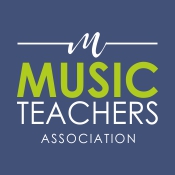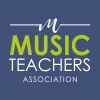The ISM and Music Teachers’ Association (MTA) combine expertise and knowledge in a joint response to the Department for Education’s Call for Evidence on the future of music education. The Call for Evidence will also inform proposals for the refresh of the National Plan for Music Education. The deadline to respond has been set as Friday 13 March 2020.
The Music Teachers’ Association (the largest and longest established association of music teachers in the UK) and the ISM (the UK’s professional body for musicians and a nationally-recognised subject association for music) have released details of their joint response to the Department for Education’s (DfE) Call for Evidence on the future of music education. The response sets out in detail the two organisations’ recommendations to the DfE in their commitment to ensuring quality music education in the classroom for all. The Call for Evidence, which opened in February, will also inform future proposals for the National Plan for Music Education (NPME).
Key recommendations include:
1. All children should have access to a high-quality music education.
2. High-quality music education must take place in the classroom, in all schools irrespective of status, across Key Stages 1, 2, and 3.
3. A culture of singing should be embedded in all schools via classroom teaching, supported by music education hubs as necessary.
4. Music education must form a core component of a broad and balanced curriculum in academies as well as maintained schools.
5. Music must also be taught across Key Stage 3 and not prematurely curtailed in order to prepare for GCSEs or KS4 equivalents.
6. Schools need to receive clear guidance from the DfE that headline accountability measures must not erode the delivery of a broad and balanced curriculum at Key Stage 3.
7. The revised NPME should address the quality, provision and access to music for all students, including addressing music education for Early Years, students with SEND, and children from deprived areas. In addition, the NPME should improve signposting of music education opportunities for 18 to 25-year-olds.
8. The role of classroom music teachers must be re-prioritised by the DfE, focusing on recruitment, retention, and professional development so that all schools are equipped to provide a high-quality music education to all students.
9. The DfE should take steps to speak directly to school governing bodies to communicate the value of music education in schools and music education hubs.
10. Music education hub funding needs to be at £100 million per annum on a sustained three-year basis.
11. There must also be a sufficient number of qualified teachers coming through to support the delivery of music education in schools and music education hubs.
12. The NPME refresh must provide clarity as to the roles and responsibilities of schools and music education hubs.
Simon Toyne, President of the Music Teachers’ Association said:
‘Schools are places where all children should experience a rich and meaningful musical world, and should be at the centre of the new NMPE. The MTA is committed to supporting music teachers in delivering a vibrant curriculum, vocal and instrumental programmes and a calendar of musical events which is accessed by the whole school community.
We look forward to working with the government to strengthen the position of music in schools, develop outstanding music teachers and create strong musical communities accessible to everyone.’
Deborah Annetts, Chief Executive of the Incorporated Society of Musicians said:
‘The ISM is grateful to the Department for Education for its commitment to music education, particularly through the introduction of music education hubs. But, as demonstrated by a wealth of published research from the ISM, APPG for Music Education, University of Sussex, NEU and others, this by itself is not enough.
The refreshed National Plan for Music Education is a vital opportunity for government to send a clear message to all schools that music is part of a broad and balanced curriculum and that a quality music education delivered in the classroom which is accessible to all is fundamental to a good education.’
Contact:
For more information from the MTA, please contact media@musicteachers.org
For more information from the ISM, please contact francesca.treadaway@ism.org


